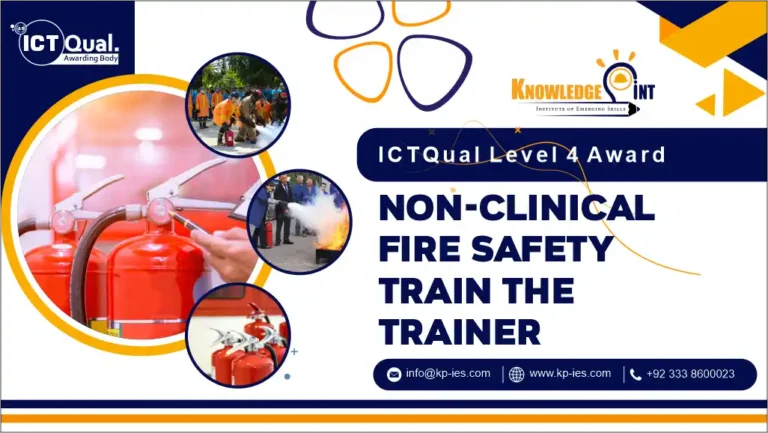The ICTQual Level 5 Diploma in Telecom Engineering is your gateway to mastering the dynamic and fast-evolving field of telecommunications. Spanning two years and delivering 240 credits, this comprehensive program is designed to equip students with the knowledge, skills, and confidence to thrive in one of the most in-demand industries worldwide.
The telecommunications industry is at the heart of global connectivity, driving innovation and transformation across all sectors. From 5G networks to the Internet of Things (IoT), telecom engineers play a vital role in shaping the future. This diploma offers a perfect blend of theory, hands-on practice, and industry-aligned knowledge, preparing students for rewarding careers and further academic pursuits.
The ICTQual Level 5 Diploma in Telecom Engineering is more than just a qualification it’s your pathway to a dynamic and rewarding career in one of the most innovative industries today.
Course Overview
The ICTQual Level 5 Diploma in Telecom Engineering 240 Credits-Two Years consists of 24 mandatory units which are as follows.
Year 1 (120 Credits)
- Introduction to Telecommunications Engineering
- Mathematics for Telecommunications
- Electrical Circuit Analysis
- Digital Logic and Systems
- Signals and Systems
- Principles of Communication Systems
- Data Communication and Networking Fundamentals
- Electronics for Telecommunications
- Antennas and Wave Propagation Basics
- Technical Drawing and CAD for Telecom Systems
- Health and Safety in Telecom Installations
- Professional Communication Skills
Year 2 (120 Credits)
- Advanced Communication Systems
- Wireless and Mobile Communication
- Optical Fiber Communication
- Microwave Engineering
- Internet of Things (IoT) in Telecommunications
- Network Design and Management
- Telecom Switching Systems and Networks
- Satellite Communication Systems
- Advanced Signal Processing
- Telecom Project Management
- Emerging Trends in 5G and Beyond
- Capstone Project in Telecommunications
Learning Outcomes of ICTQual Level 5 Diploma in Telecom Engineering 240 Credits-Two Years
Year 1: Foundation in Telecommunications Engineering (120 Credits)
Introduction to Telecommunications Engineering
- Understand the fundamental concepts, terminologies, and roles in telecommunications.
- Describe the evolution of telecom systems and their impact on society.
Mathematics for Telecommunications
- Apply mathematical methods to solve problems in signal processing and network design.
- Utilize algebra, calculus, and probability to analyze telecom engineering scenarios.
Electrical Circuit Analysis
- Analyze and design basic electrical circuits for telecommunications.
- Evaluate the performance of circuits using theorems and simulation tools.
Digital Logic and Systems
- Understand the principles of digital logic and Boolean algebra.
- Design and analyze combinational and sequential logic circuits.
Signals and Systems
- Explain signal types, properties, and transformations in telecom systems.
- Apply Fourier and Laplace transforms to analyze time-domain and frequency-domain signals.
Principles of Communication Systems
- Understand the fundamentals of analog and digital communication systems.
- Explain modulation techniques and their applications.
Data Communication and Networking Fundamentals
- Identify key concepts in data transmission, encoding, and protocols.
- Explain the OSI and TCP/IP models and their layers.
Electronics for Telecommunications
- Analyze electronic components and circuits used in telecom systems.
- Design basic amplifiers, oscillators, and power supplies.
Antennas and Wave Propagation Basics
- Understand the basic principles of antenna design and wave propagation.
- Analyze the impact of environmental factors on signal transmission.
Technical Drawing and CAD for Telecom Systems
- Create technical drawings using Computer-Aided Design (CAD) tools.
- Interpret and produce schematics for telecom installations.
Health and Safety in Telecom Installations
- Recognize and apply health and safety standards in telecom environments.
- Assess risks and implement safety measures in installations.
Professional Communication Skills
- Develop effective written and verbal communication skills.
- Demonstrate professional reporting and presentation techniques.
Year 2: Intermediate Telecommunications Engineering (120 Credits)
Advanced Communication Systems
- Analyze advanced analog and digital communication techniques.
- Evaluate system performance under various noise and interference conditions.
Wireless and Mobile Communication
- Explain the principles of wireless communication and mobile network architectures.
- Analyze the design and optimization of cellular networks, including 4G LTE.
Optical Fiber Communication
- Understand the working principles of optical fiber systems.
- Design and evaluate fiber optic communication links for efficiency.
Microwave Engineering
- Analyze microwave devices and systems for telecom applications.
- Design basic microwave circuits, including waveguides and transmission lines.
Internet of Things (IoT) in Telecommunications
- Explain the role of IoT in modern telecom networks.
- Develop basic IoT applications and integrate them with telecom systems.
Network Design and Management
- Design and implement efficient telecom networks.
- Manage network performance, security, and scalability.
Telecom Switching Systems and Networks
- Understand switching technologies, including circuit and packet switching.
- Analyze and design telecom switching systems for voice and data networks.
Satellite Communication Systems
- Explain the principles of satellite communication and orbital mechanics.
- Design and evaluate satellite links for communication and broadcasting.
Advanced Signal Processing
- Apply advanced techniques for filtering, modulation, and noise reduction.
- Analyze the role of digital signal processing (DSP) in telecom systems.
Telecom Project Management
- Plan, execute, and manage telecom projects effectively.
- Apply project management tools and techniques to ensure timely delivery.
Emerging Trends in 5G and Beyond
- Explore the principles and applications of 5G networks and emerging technologies.
- Analyze the role of next-generation communication systems in global connectivity.
Capstone Project in Telecommunications
- Develop a comprehensive project addressing a real-world telecom problem.
- Demonstrate technical, analytical, and project management skills.
Benefits of the ICTQual Level 5 Diploma in Telecom Engineering 240 Credits-Two Years
The ICTQual Level 5 Diploma in Telecom Engineering 240 Credits-Two Years is designed to provide a well-rounded and career-oriented education in telecommunications. Below are the key benefits of this program:
1. Comprehensive Skill Development
- Covers a wide spectrum of topics, from foundational concepts to advanced specializations such as 5G technology, IoT, and satellite communications.
- Equips students with technical, analytical, and managerial skills tailored for the telecommunications industry.
2. Industry-Relevant Curriculum
- Aligned with the latest industry trends and standards, ensuring learners gain knowledge that is immediately applicable in professional settings.
- Includes practical exposure to cutting-edge technologies like cloud computing, fiber optics, and network security.
3. Hands-On Experience
- Emphasis on real-world learning through lab sessions, simulations, and projects.
- Final Year Project enables students to showcase their expertise in a practical, industry-relevant scenario.
4. Career Advancement Opportunities
- Prepares students for diverse roles, including Telecom Engineer, Network Specialist, RF Engineer, and Telecom Project Manager.
- Builds a strong foundation for further certifications or postgraduate studies in advanced telecom fields.
5. Networking and Professional Growth
- Opportunities to connect with industry experts, peers, and alumni through workshops, internships, and collaborative projects.
- Develops leadership and project management skills, essential for advancing into senior roles.
6. Versatile Skill Set for a Dynamic Industry
- Provides expertise in critical areas such as system integration, network optimization, and data analytics, which are highly sought after in modern telecom roles.
- Prepares learners to adapt to evolving technologies and regulatory frameworks.
7. Global Career Prospects
- Knowledge of international standards and practices, such as ISO, ITU, and FCC regulations, makes graduates competitive on a global stage.
- Focus on global trends like 5G, IoT, and cloud-based systems ensures learners are prepared for emerging opportunities worldwide.
8. Strong Foundation in Ethics and Safety
- Emphasizes ethical practices and compliance with telecom safety standards, fostering responsible and sustainable engineering.
- Prepares students to navigate complex regulatory environments with confidence.
9. Lifelong Learning Pathway
- Encourages critical thinking and continuous learning, enabling graduates to stay ahead in a rapidly changing industry.
- Equips learners with the tools to explore advanced certifications and specialization opportunities post-graduation.
10. Increased Earning Potential
- High-demand skill set and industry alignment make graduates highly employable, with the potential for attractive salaries and career growth.
Future Progression After Completing the ICTQual Level 5 Diploma in Telecom Engineering
The ICTQual Level 5 Diploma in Telecom Engineering 240 Credits-Two Years opens doors to numerous career and educational advancement opportunities. With a solid foundation in telecommunications and exposure to cutting-edge technologies, graduates are well-prepared to pursue a variety of progression paths, including higher education, professional certifications, and diverse career roles in the telecom industry.
1. Career Opportunities
Graduates can explore a range of roles across various sectors:
- Telecom Engineer: Designing, implementing, and maintaining telecom systems and networks.
- Network Administrator: Managing and troubleshooting network infrastructure.
- RF Engineer: Specializing in radio frequency technologies and antenna design.
- Telecom Project Manager: Leading large-scale telecom projects with a focus on planning, execution, and delivery.
- IoT Specialist: Designing and implementing IoT-enabled telecom solutions.
- Telecom Data Analyst: Utilizing big data analytics to optimize telecom operations and enhance network performance.
- Satellite Communications Specialist: Developing and maintaining satellite communication systems.
2. Higher Education
Graduates can further enhance their knowledge and credentials by pursuing advanced degrees or specialized programs:
- Master’s Degree in Telecommunications Engineering
Deepen technical expertise and research skills in advanced telecom topics. - Master’s Degree in Network Engineering or Computer Science
Broaden your scope by specializing in networking or software development. - Ph.D. in Telecom or Related Fields
For those interested in research and academia, a doctoral degree can lead to innovations and breakthroughs in the field.
3. Professional Certifications
Earning industry-recognized certifications can boost employability and demonstrate specialized expertise:
- Cisco Certified Network Professional (CCNP): Focuses on networking skills.
- Certified Wireless Network Professional (CWNP): Specializes in wireless communication technologies.
- 5G Certifications: Offered by organizations like Nokia or Ericsson to specialize in next-generation communication systems.
- Project Management Professional (PMP): For roles in telecom project management.
- Certified Fiber Optic Technician (CFOT): Specializes in fiber optics technology.
4. Entrepreneurship Opportunities
Graduates with an entrepreneurial mindset can leverage their expertise to:
- Start their own telecom consultancy.
- Develop innovative telecom products or services, especially in emerging areas like 5G, IoT, and smart cities.
5. Global Opportunities
With telecom being a critical component of global connectivity, graduates can pursue careers in international markets, where demand for skilled telecom professionals is high. Opportunities exist in:
- Global telecom companies like AT&T, Vodafone, Ericsson, Nokia, or Huawei.
- Multinational technology companies like Google, Microsoft, and Amazon Web Services (AWS).
- International organizations focusing on digital transformation and connectivity.
6. Research and Development (R&D)
Graduates passionate about innovation can contribute to R&D efforts in areas such as:
- Next-generation wireless technologies (6G, quantum communication).
- Telecom data analytics and AI-driven network management.
- Space and satellite communications systems.
7. Continuous Professional Development
The fast-evolving telecom industry requires ongoing skill updates. Graduates are encouraged to:
- Attend industry workshops, conferences, and seminars to stay updated on trends.
- Engage in online learning platforms to gain expertise in niche areas like cloud computing, cybersecurity, and telecom AI.







